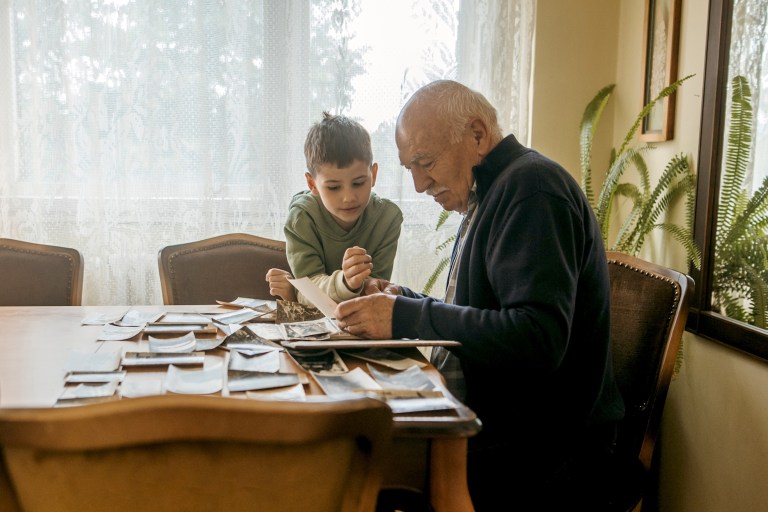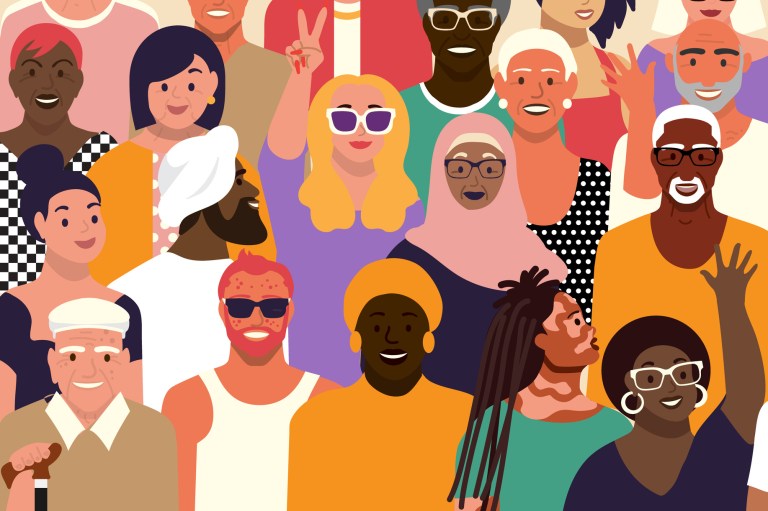The next time you have to hit the bank or post office, call a friend and make a date out of it: It’s good for you. That’s according to recent research linking happiness to companionship across over 80 different daily activities — from the mundane, like getting gas, to those that seem non-social by their very nature, like managing personal finances.
Published this past August, the study was based on a large set of data called the American Time Use Survey, conducted by the U.S. Census Bureau. Specifically, it looked at data from four years during which survey respondents were asked to rate their happiness while partaking in daily activities. In total, researchers examined how more than 41,000 people felt, and whether they interacted with others, across over 105,000 instances of the activities analyzed.
“These results suggest that whether we are eating, reading, or even cleaning up around the house, happiness thrives in the company of others,” the study authors wrote. Speaking to The Washington Post, senior author Elizabeth Dunn added that the research “suggests that we are leaving some happiness on the table by engaging in everyday activities alone.”

While it’s been well-established that social interaction is a critical component of human happiness in general, the idea that even quotidian chores and traditionally solitary activities could be made more enjoyable by the presence of a pal is more remarkable. As behavioral science professor Nicholas Epley, who was not involved in the research, told the Post: “I was still surprised by the magnitude and extremity of the effects.”
The results illuminate the reason reading parties and silent book clubs have taken off in recent years. These events involve people getting together to essentially do their own thing, while in the presence of others.
Of all the survey responses studied, only one activity in one year wasn’t associated with greater enjoyment: “The only negative coefficient across the four years was for the effect of socializing on happiness while engaging in kitchen and food cleanup in 2021,” the authors wrote. “In all other years, however, the estimate for this activity was greater than zero, underscoring the robust association between social interaction and happiness.”
Perhaps unsurprisingly, the biggest boosts to happiness came from having partners in crime during activities that inherently have space for socializing, like watching TV, eating, and playing games. Activities that are undoubtedly social, though, like telephone calls and caregiving for family members, were excluded from the analysis.

Notably, in this context, “in the company of others” included phone calls, meaning the results hold even if someone is chatting with you through your AirPods while you take out the trash, for example. The study did not account for cultural or personality differences, but the authors pointed out that previous research suggests that both introverts and extroverts benefit from socializing.
They also stressed that even though the actual differences in happiness from socializing are “relatively small,” because people have “countless opportunities to socialize throughout their daily lives, these small effects may accumulate into meaningful differences in overall happiness.”
Dunn herself makes a point to carve out time for social interaction throughout her week as best she can, and she suggests others do the same. “It does take that little bit of extra planning,” she told the Post, “but I think our data and my experience definitely point to the value of taking that extra moment to set up these opportunities for social interaction.”
RELATED: From Close to Convenient: The 7 Types of Friendships Everyone Needs











